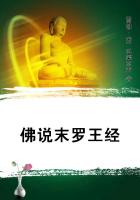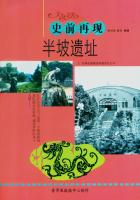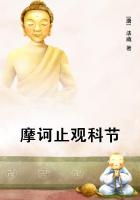Wednesday, May 28, 1788
HAMILTON
To the People of the State of New York:
THE objection to the plan of the convention, which has met with most success in this State, and perhaps in several of the other States, is that relative to the want of a constitutional provision for the trial by jury in civil cases. The disingenuous form in which this objection is usually stated has been repeatedly adverted to and exposed, but continues to be pursued in all the conversations and writings of the opponents of the plan. The mere silence of the Constitution in regard to civil causes, is represented as an abolition of the trial by jury, and the declamations to which it has afforded a pretext are artfully calculated to induce a persuasion that this pretended abolition is complete and universal, extending not only to every species of civil, but even to criminal causes. To argue with respect to the latter would, however, be as vain and fruitless as to attempt the serious proof of the existence of matter, or to demonstrate any of those propositions which, by their own internal evidence, force conviction, when expressed in language adapted to convey their meaning.
With regard to civil causes, subtleties almost too contemptible for refutation have been employed to countenance the surmise that a thing which is only not provided for, is entirely abolished. Every man of discernment must at once perceive the wide difference between silence and abolition. But as the inventors of this fallacy have attempted to support it by certain legal maxims of interpretation, which they have perverted from their true meaning, it may not be wholly useless to explore the ground they have taken.
The maxims on which they rely are of this nature: "A specification of particulars is an exclusion of generals"; or, "The expression of one thing is the exclusion of another." Hence, say they, as the Constitution has established the trial by jury in criminal cases, and is silent in respect to civil, this silence is an implied prohibition of trial by jury in regard to the latter.
The rules of legal interpretation are rules of common sense, adopted by the courts in the construction of the laws. The true test, therefore, of a just application of them is its conformity to the source from which they are derived. This being the case, let me ask if it is consistent with common-sense to suppose that a provision obliging the legislative power to commit the trial of criminal causes to juries, is a privation of its right to authorize or permit that mode of trial in other cases?
Is it natural to suppose, that a command to do one thing is a prohibition to the doing of another, which there was a previous power to do, and which is not incompatible with the thing commanded to be done?
If such a supposition would be unnatural and unreasonable, it cannot be rational to maintain that an injunction of the trial by jury in certain cases is an interdiction of it in others.
A power to constitute courts is a power to prescribe the mode of trial; and consequently, if nothing was said in the Constitution on the subject of juries, the legislature would be at liberty either to adopt that institution or to let it alone. This discretion, in regard to criminal causes, is abridged by the express injunction of trial by jury in all such cases; but it is, of course, left at large in relation to civil causes, there being a total silence on this head. The specification of an obligation to try all criminal causes in a particular mode, excludes indeed the obligation or necessity of employing the same mode in civil causes, but does not abridge the power of the legislature to exercise that mode if it should be thought proper. The pretense, therefore, that the national legislature would not be at full liberty to submit all the civil causes of federal cognizance to the determination of juries, is a pretense destitute of all just foundation.
From these observations this conclusion results: that the trial by jury in civil cases would not be abolished; and that the use attempted to be made of the maxims which have been quoted, is contrary to reason and common-sense, and therefore not admissible. Even if these maxims had a precise technical sense, corresponding with the idea of those who employ them upon the present occasion, which, however, is not the case, they would still be inapplicable to a constitution of government. In relation to such a subject, the natural and obvious sense of its provisions, apart from any technical rules, is the true criterion of construction.
Having now seen that the maxims relied upon will not bear the use made of them, let us endeavor to ascertain their proper use and true meaning.
This will be best done by examples. The plan of the convention declares that the power of Congress, or, in other words, of the national legislature, shall extend to certain enumerated cases. This specification of particulars evidently excludes all pretension to a general legislative authority, because an affirmative grant of special powers would be absurd, as well as useless, if a general authority was intended.
In like manner the judicial authority of the federal judicatures is declared by the Constitution to comprehend certain cases particularly specified. The expression of those cases marks the precise limits, beyond which the federal courts cannot extend their jurisdiction, because the objects of their cognizance being enumerated, the specification would be nugatory if it did not exclude all ideas of more extensive authority.
These examples are sufficient to elucidate the maxims which have been mentioned, and to designate the manner in which they should be used. But that there may be no misapprehensions upon this subject, I shall add one case more, to demonstrate the proper use of these maxims, and the abuse which has been made of them.















